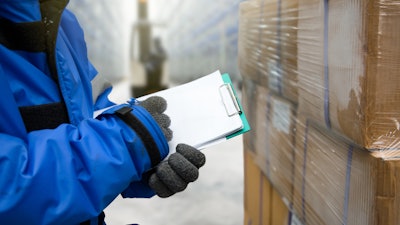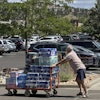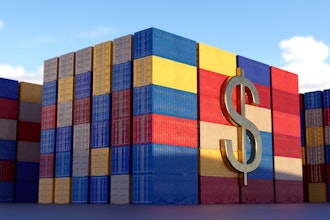
VANCOUVER, BC — The Global Food Cold Chain Market is projected to reach $526 billion in 2027. Technological innovation is expected to drive growth in packaging, processing and storage of seafood products.
Incorporating and processing temperature-sensible goods with cold chain solutions has become a part of supply chain management. Increased trade in perishable goods is expected to fuel demand over the forecast period for these solutions. Cold chain companies are gradually embracing renewable energy technologies like wind and solar to reduce overall operating costs. Cooling systems are used for the prolongation of shelf life and to improve product consistency as part of cold chain solutions. Coolants used in cooling systems are considered an environmental hazard because of their high global warming potential (GWP) and ozone depletion capability (ODP), thus posing as a growth hindrance for the market.
The industry is expected to benefit from more strict food safety legislation such as the Modernization Act on Food Security, which calls for greater consideration of the construction of a cool storage facility. The implementation by the Building Research Establishment of Environmental Assessment (BREEAM) of environmental audits programs such as Leadership in Energy and Environmental Design (LEED) will test construction at the initial phase. Therefore, these audit systems can evaluate the operational performance of completed structures.
The temperature-controlled warehouses are extremely energy sensitive because they deploy a high energy consuming cooling and ventilation system. Nonetheless, improved design will reduce energy consumption and help create net zero energy storage facilities. Smart warehouse automation and control systems are a component in making buildings self-sustainable with net zero electricity. Lower energy consumption greatly decreases running costs and consequently leads to environmental and climatic health.
The COVID-19 impact:
To a certain degree, the COVID-19 pandemic may threaten industry development. Main players in this field are cautious about the industry's prospects and seek to find innovative means of sustainability. The medical firm had an effect on the pandemic and several major factories had to avoid manufacturing and take on other operations. Thanks to regular lock-ups, services in different parts of the world are missing. In the COVID-19 scenario, trade, exports and imports from elsewhere in Europe decreased significantly. The world's largest businesses continue to clean up their finances and retain cash reserves. Consumers are feared to lose their disposable income, and farmers are trying to find new solutions to meet a considerably lower cost demand in the market.
Further key findings from the report suggest
- Connected goods allow companies to establish better consumer ties by differentiating products and going beyond market competition.
- The market has gained popularity in developing countries due to a move from improved production to better transport and storage facilities.
- The IoT technologies are of crucial importance for the pharmaceutical industry include the control of the cold chain, intelligent packaging, product lifecycle administration, men and material and connected equipment.
- The supply chain, enabled by RFID, provides improved productivity and has opened up new opportunities with visibility at product level.
- Globalization and a growing number of counterfeit accidents in pharmaceuticals and food safety have prompted governments to implement production and supply regulations. The growing trend of online purchasing of food products and e-commerce in China are key drivers of demand.
- In December 2017, the new extension to its Clearfield, Utah campus has been opened by Americold Logistics (UK). The new building expanded the temperature regulated storage space to approximately 9.5 million cubic feet. This expansion helped expand market share in the company's total temperature-controlled warehouse capacity in northerly Utah to more than 50%.
- Main players in the market include Americold Logistics LLC, Burris Logistics, Inc., Agro Merchant Group, Cloverleaf Cold Storage, Lineage Logistics, LLC, Henningsen Cold Storage Company, Nordic Logistics, Swire Group, Preferred Freezer, and Wabash National, among others.






















